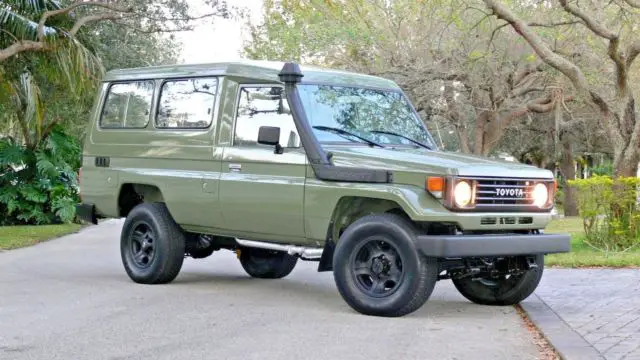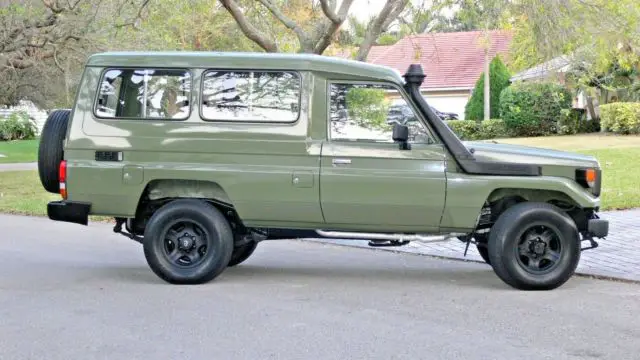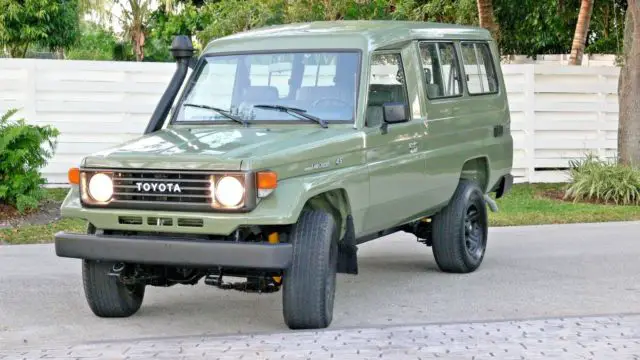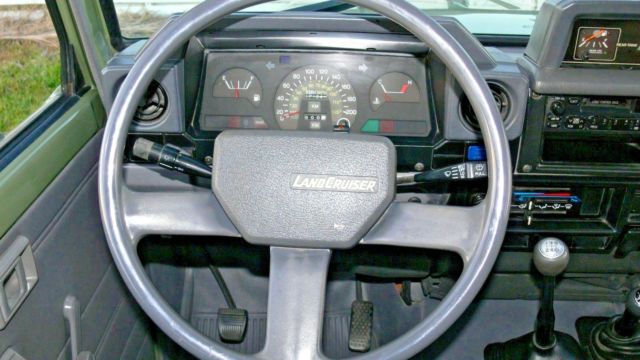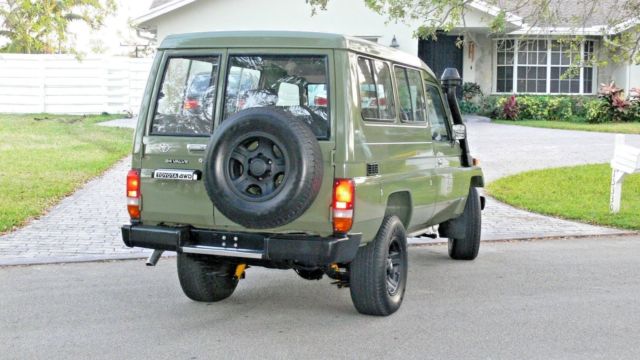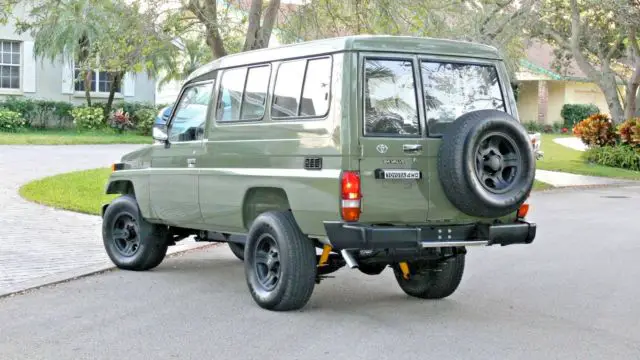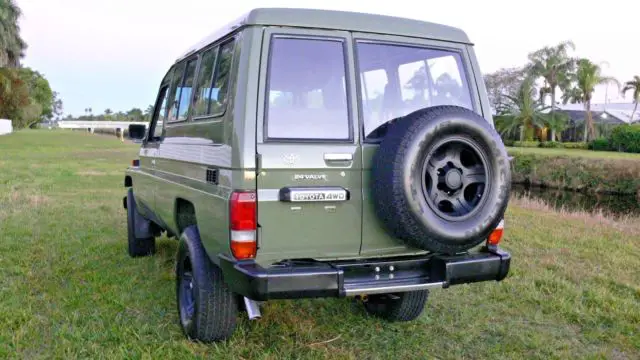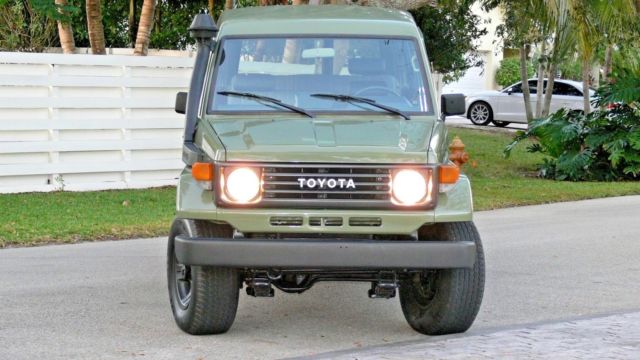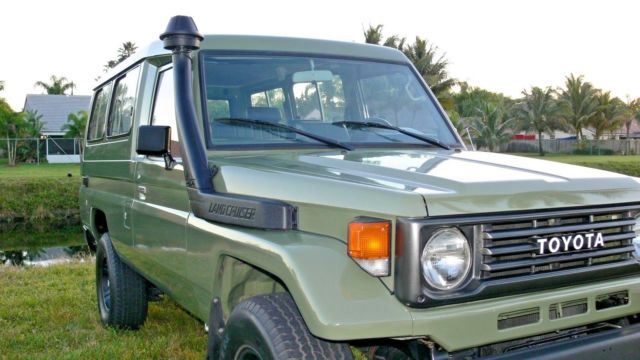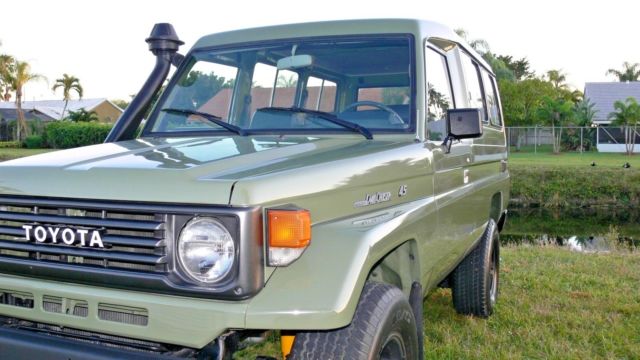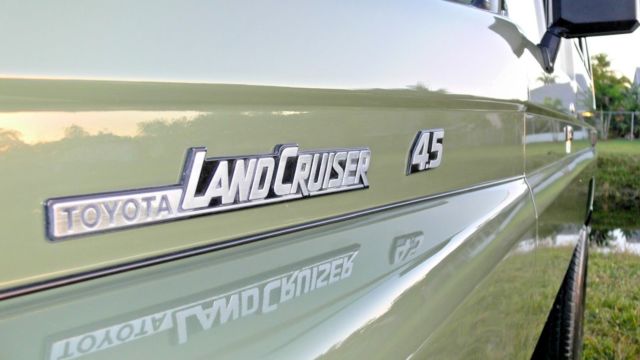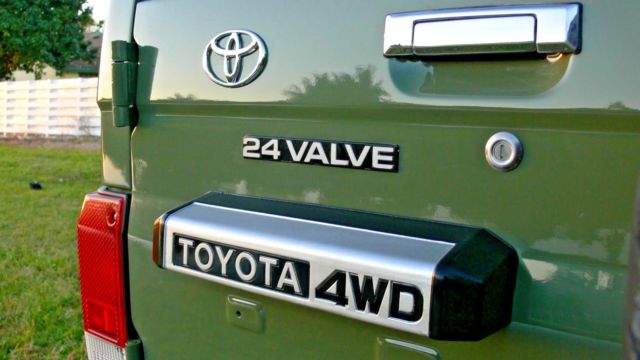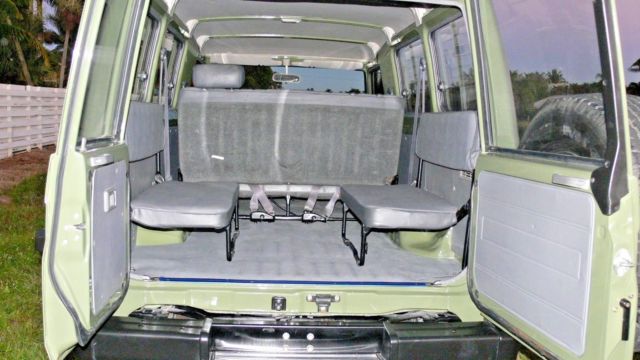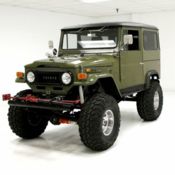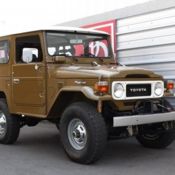Description
FZJ75 The 70 Series is a family of Toyota Land Cruiser models produced from 1984 until the present day. It replaced the 25-year-old 40 Series as the off-road workhorse of the Land Cruiser heritage, while the 60 Series (and later the 80, 90, 100, 150 and 200 Series) developed into more comfortable passenger off-road vehicles. Despite major changes in styling and numerous technological updates, the 70 Series was designed to retain the off-road capabilities and durability for which the 40 Series had become known. The 70 Series was marketed throughout the world, except for countries like the USA, Canada, Mexico, Brazil and Korea. As a celebration of the Land Cruiser 70's 30th anniversary, Toyota will temporarily market the Land Cruiser 70 series in the Japanese market for 12 months; afterwards, it will be removed from Toyota Japan's product line. HISTORY: Model designation. Originally, model numbers 70 through 74 referred to the two-door short- and medium-wheelbase versions. These were the successors of the 40 Series, such as the FJ40. Model numbers 75 through 77 referred to the long-wheelbase version, which was available in pick-up and two-door troop carrier models and, in a few markets, a four-door wagon. These were the successors of the less-well known long-wheelbase 40 Series, such as the FJ45. In 1999, Toyota introduced several updates and changed the model designations, where the long-wheelbase models became the 78 (troop carrier) and 79 (pick-up). In 2007, the 76 (four-door wagon) was added, while the new dual-cab models also share the 79 model designation (essentially the same chassis). Short-wheelbase models are only in production today for a few select markets. PRODUCTION: 1984-1999. The 70 / 75 series Toyota Land Cruiser took over from the 40 / 45 series of workhorse four-wheel drives in 1984. The styling maintained a family resemblance to the 40 / 45 series but became more angular. The 70 / 71 series was the short-wheelbase (SWB), the 73 / 74 was the medium-wheelbase (MWB) and the 75 / 77 was the long-wheelbase (LWB). The latter came as cab-chassis/utility with a "panelled" tray (pick-up), and "troop carrier" hard-top (HT). Toyota also manufactured lighter duty versions that shared the 70 Series designation from 1985 to 1996, and were marketed in various parts of the world as the Bundera, the Prado, or the Land Cruiser II. Of these, the Prado name stuck, and each modification took it further from its 70 Series roots. Starting in 1997 the Prado was known as the 90 Series, and had become a light-duty passenger 4x4 with no relation to the 70 Series. ENGINE: The Toyota FZ engine was a 24-valve, 4.5L DOHC straight-6 internal combustion engine manufactured by Toyota to replace the F-series engine. It was used primarily in SUVs because of its large displacement, smoothness, ruggedness and torque. The engine displaced 4476 cc with a bore and stroke measuring 100 millimetres (3.9 in) x 95 millimetres (3.7 in), respectively and a 9.0:1 compression ratio; the head used Toyota's narrow-angle overhead camshafts for better fuel economy. The 1FZ had only two variants available: the 1FZ-F and the 1FZ-FE. The only significant difference between the two was the inclusion of electronic fuel injection on the 1FZ-FE, whereas the 1FZ-F used a carburetor. camshafts for better fuel economy. The 1FZ had only two variants available: the 1FZ-F and the 1FZ-FE. The only significant difference between the two was the inclusion of electronic fuel injection on the 1FZ-FE, whereas the 1FZ-F used a carburetor. Starting in 1998, the fuel injected version of the 1FZ-FE was also manufactured with a direct ignition variation available in certain non-US markets (the engine pictured here is that variant discernible by the intake manifold and lack of distributor). The 1FZ-F produced 190 horsepower (140 kW) at 4400 RPM and 268 pound-feet (363 N·m) at 2800 RPM; its fuel injected counterpart produced 212 horsepower (158 kW) at 4600 RPM and 275 pound-feet (373 N·m) at 3200 RPM.
